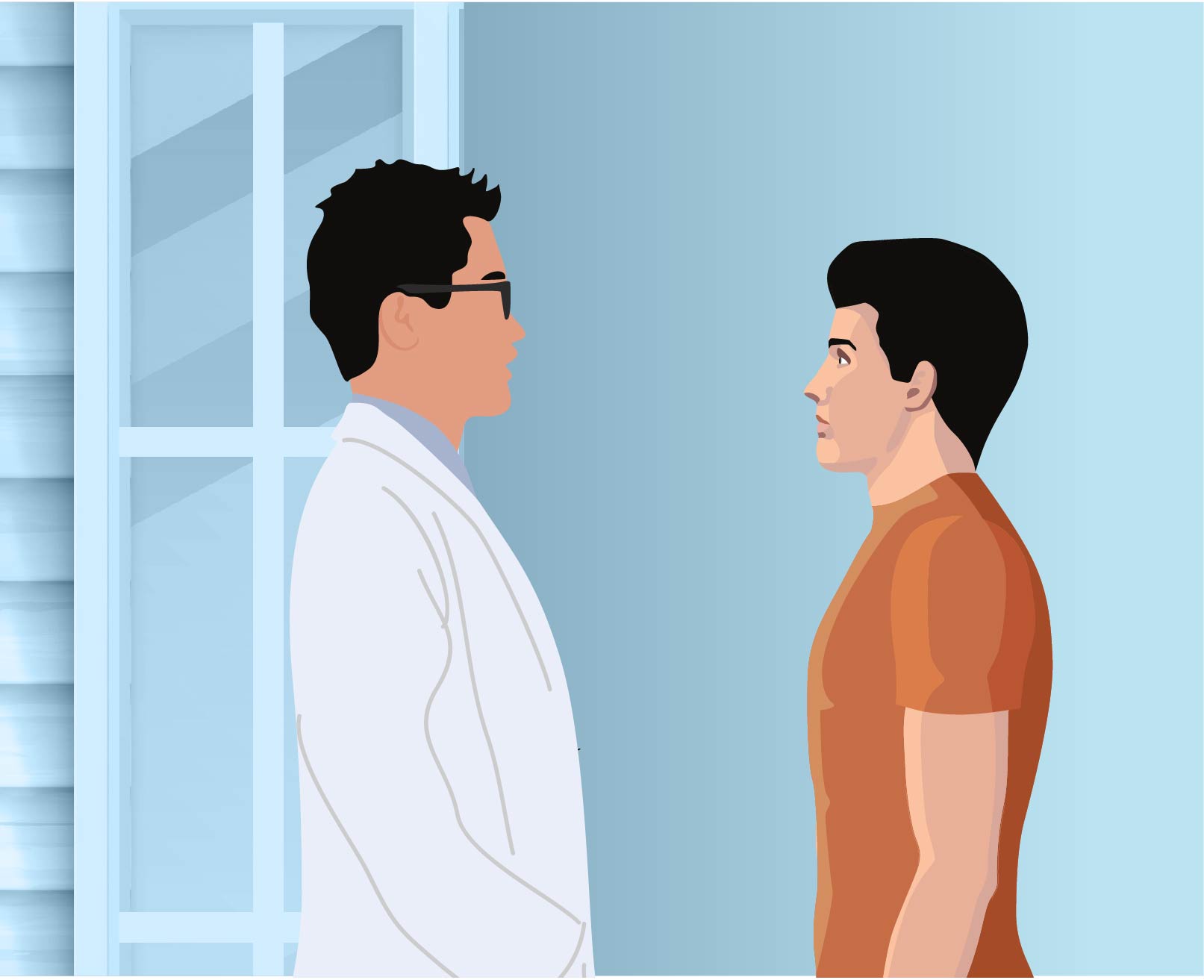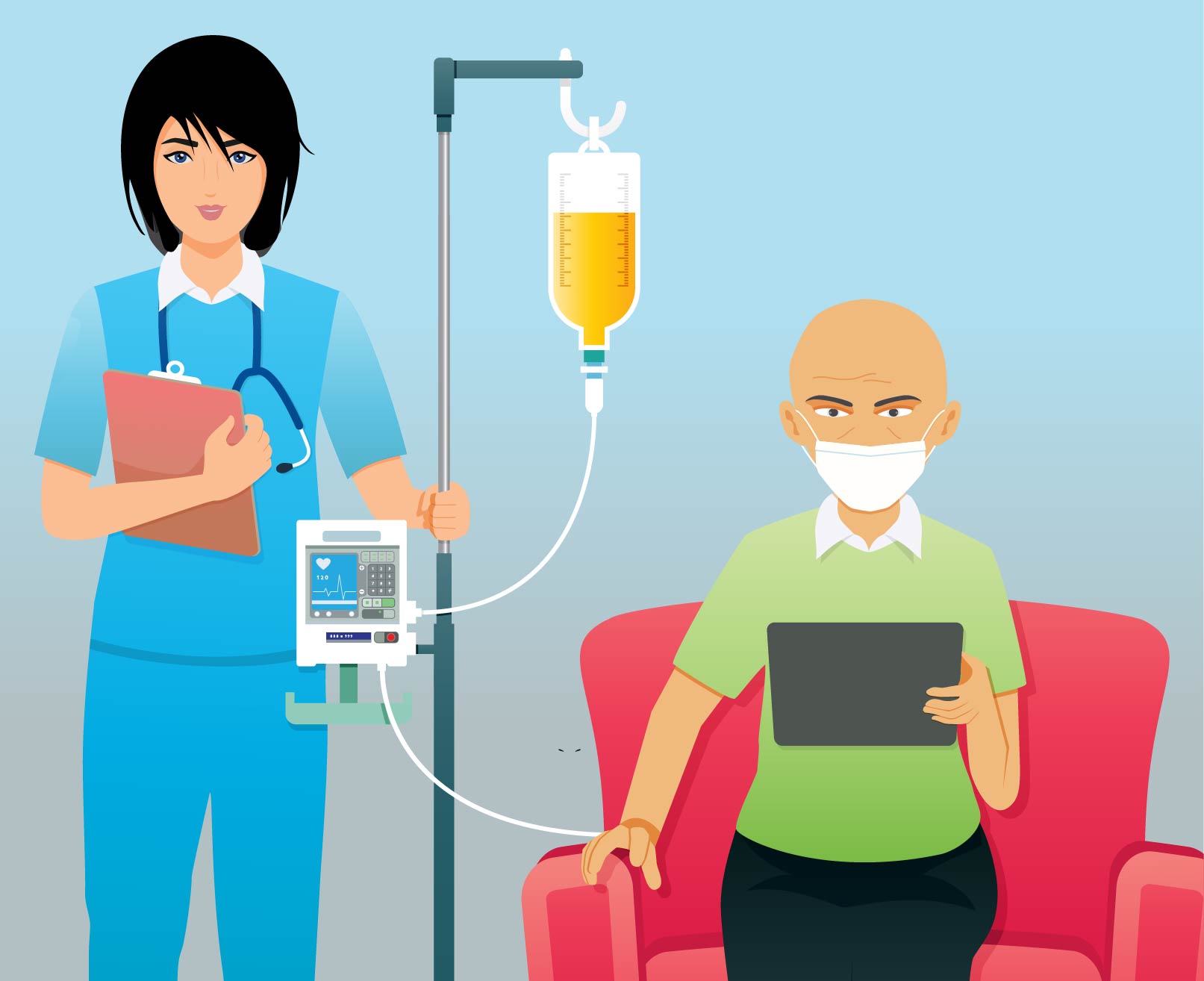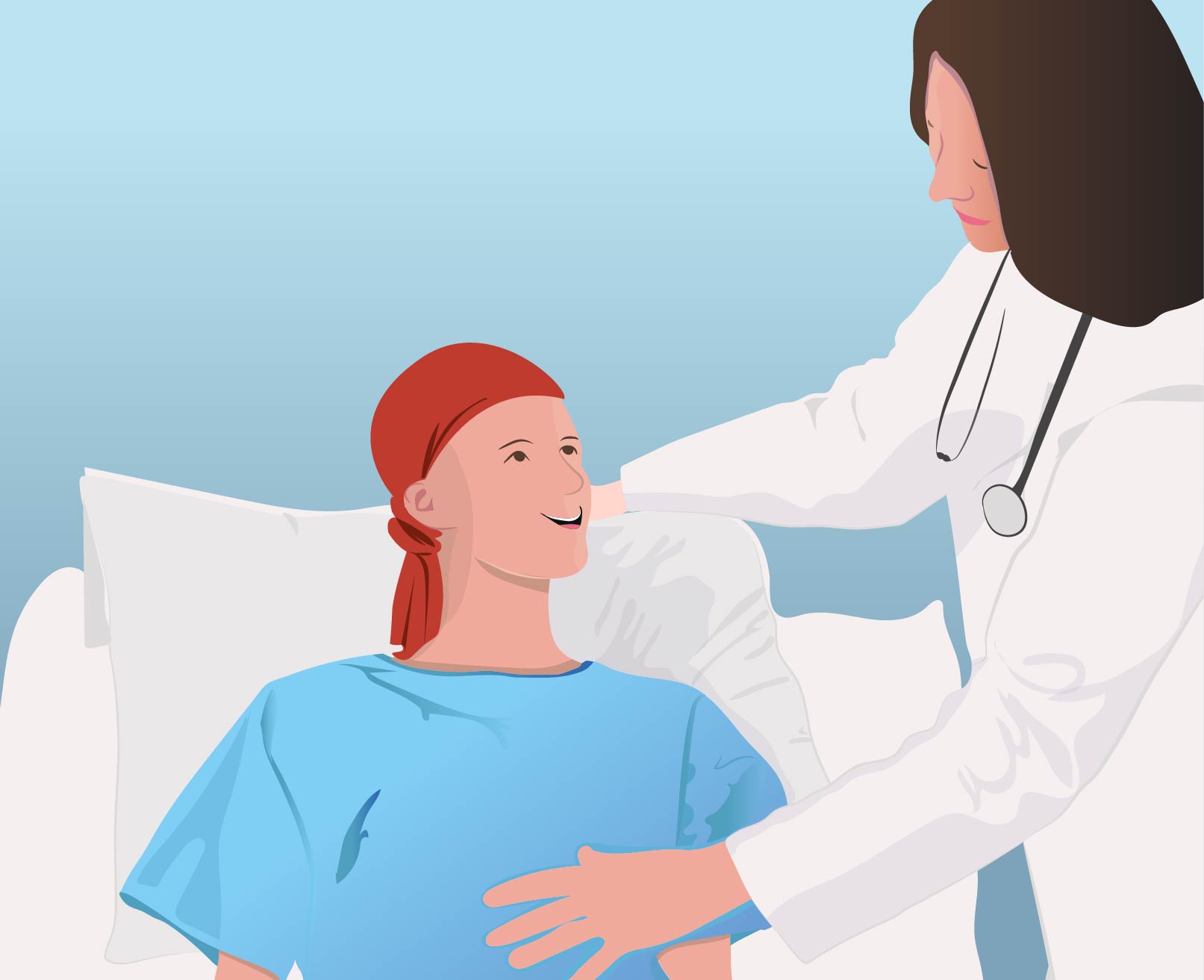Personalized consultation & second opinion

At our center, we offer personalized Consultation and Second Opinion services, meticulously designed to cater to your individual healthcare needs. We recognize the knowledge gap that often exists between healthcare providers and cancer patients. Our mission is to bridge this gap by empowering patients and their caregivers with comprehensive information and compassionate support, facilitating informed decision-making throughout the cancer journey.
We are committed to providing extensive education to patients, ensuring they have a clear understanding of their diagnosis, available treatment options, and potential outcomes. Our goal is to empower patients with the knowledge necessary to actively participate in their care decisions. We believe that an informed patient is better equipped to navigate their treatment journey effectively.
We understand the crucial role that family members and caregivers play in a patient's cancer care. Our center extends support not only to patients, but also to their families and caregivers. We offer resources, guidance, and a supportive environment to help caregivers understand the complexities of cancer treatment, manage caregiving responsibilities, and provide emotional support to their loved ones.
Compassion and empathy are at the core of our approach. We strive to create a nurturing environment where patients feel heard, valued, and supported. Our team is dedicated to providing not only medical expertise but also emotional support, understanding the emotional challenges that come with a cancer diagnosis. We prioritize open communication, active listening to patient concerns, and offering empathetic guidance throughout their journey.
Empowerment through Knowledge
Access to comprehensive information enabling informed decision-making.Supportive Resources:
Guidance and resources for caregivers and family members to navigate the challenges of cancer care.
Compassionate Care:
A nurturing environment fostering compassion, empathy, and emotional support.
Holistic Approach:
Comprehensive care addressing not just medical needs, but also emotional well-being.
At our center, we aim to bridge the gap in cancer knowledge, providing a supportive and empathetic environment where patients and their caregivers feel empowered, informed, and cared for. Our commitment is to walk alongside you, offering guidance and support every step of the way.
Chemotherapy

Chemotherapy uses powerful medications (chemo drugs) to kill or slow the growth of cancer cells. These drugs can be administered orally, intravenously, or through injections. Chemotherapy targets rapidly dividing cells, including cancer cells, but it can also affect some healthy cells, leading to side effects like nausea, hair loss, fatigue, and an increased risk of infections. The treatment is often given in cycles to allow the body time to recover between sessions.
Immunotherapy & targeted therapy

Immunotherapy
Immunotherapy, also known as biologic therapy, aims to harness the body's immune system to fight cancer. It includes various approaches such as immune checkpoint inhibitors, CAR-T cell therapy, monoclonal antibodies, and therapeutic vaccines. These treatments work by enhancing the immune system's ability to recognize and attack cancer cells specifically, often with fewer side effects than traditional treatments. Immunotherapy has shown remarkable success in certain cancers, helping the immune system identify and destroy cancer cells more effectively.
Targeted therapy
Targeted therapy involves using drugs that target specific molecules or pathways involved in the growth and spread of cancer cells. These medications are designed to interfere with particular proteins, genes, or other factors contributing to cancer cell growth. Unlike chemotherapy, which affects both healthy and cancerous cells, targeted therapy aims to precisely target cancer cells, resulting in fewer side effects.
Hormonal Therapy
Hormonal therapy is used for cancers that are hormone-sensitive, such as certain types of breast, prostate, or ovarian cancers. It works by altering hormone levels in the body or blocking hormone receptors on cancer cells. This interference inhibits the cancer cells' ability to grow and divide. Hormonal therapy may involve medications that either reduce hormone production in the body or block hormone receptors on cancer cells.
These treatments are often used alone or in combination, depending on the type and stage of cancer, the patient's overall health, and other individual factors. The choice of treatment modality or combination is tailored to the specific characteristics of each patient's cancer and aims to achieve the best possible outcomes while minimizing side effects.
Disclaimer:
The information provided here is for educational purposes and patient understanding only. It is not intended as medical advice. Treatment decisions should be made in consultation with qualified healthcare professionals, considering individual patient characteristics, cancer type, stage, and other medical considerations. Always seek guidance from your healthcare provider regarding diagnosis, treatment options, and medical advice specific to your condition.
Palliative Care

Palliative care at our center is dedicated to enhancing the overall quality of life of our patients and their caregivers and family. Our holistic approach goes beyond medical treatment, providing comprehensive support for physical discomfort, emotional distress, and the challenges of the illness journey, aiming to significantly improve well-being and comfort.
Other allied services
- Dietician Services
- Physiotherapy
- Occupational Therapy
- Scalp Cooling
- Genetic Counselling